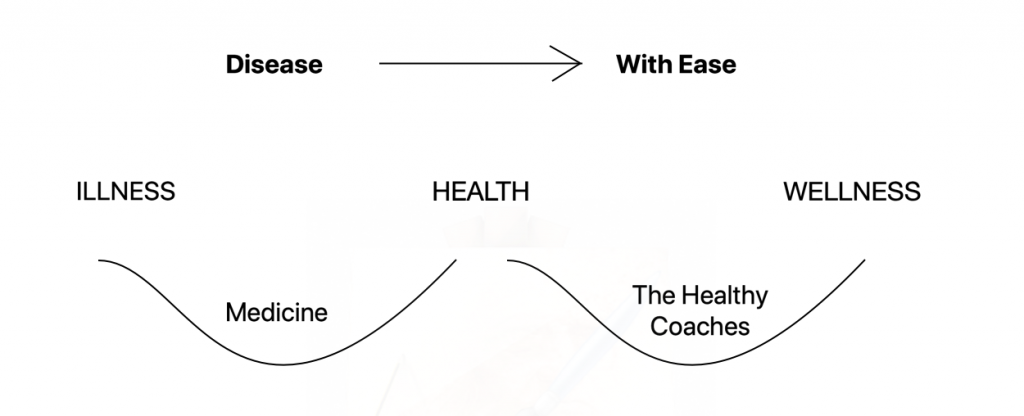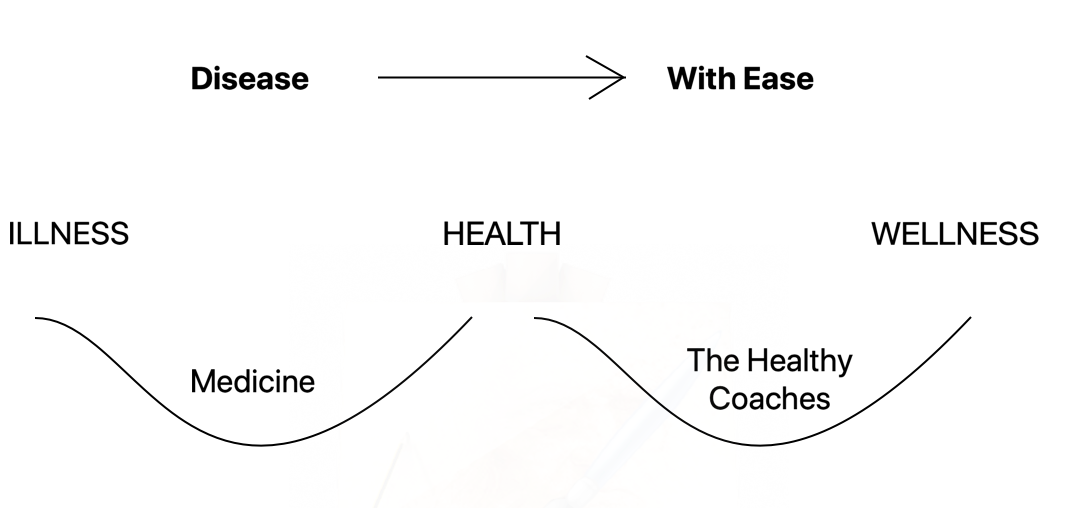What is health and can we define it?
That’s the topic we tried to tackle in Ep. 8 of The Healthy Coaches Podcast. It proved pretty difficult and we’ve already changed our minds! That being said, we still wanted to publish the episode and provide notes of what was discussed. We hope these ideas will stimulate some conversations around this all important topic.
What is Health? Podcast Episode Shownotes
1. When people say the words “health” or “healthy”, they are mainly referring to physical characteristics. Weight, beauty, youth, strength, athleticism are all signs of health. However health is much more expansive than that and includes mental, emotional, social, and spiritual health amongst others.
2. There is NO scientific definition of health. Medical journals and textbooks are focused on disease. A search on PubMed with the terms “health” and “definition” provides very few articles all of which are conceptual and theoretical.
3. Another viewpoint is to look at the etymology of the word “health” and its history. From https://www.etymonline.com/word/health:
health (n.)
Proto-Germanic “hailaz” – Entire, complete. Healthy, sound. Whole, unbroken, intact.
Old English hælþ “wholeness, a being whole, sound or well,” from Proto-Germanic *hailitho, “whole, uninjured, of good omen” (source also of Old English hal “hale, whole;” Old Norse heill “healthy;” Old English halig, Old Norse helge “holy, sacred;” Old English hælan “to heal”).
Of physical health in Middle English, but also “prosperity, happiness, welfare; preservation, safety.” An abstract noun to whole, not to heal. Meaning “a salutation” (in a toast, etc.) wishing one welfare or prosperity is from 1590s.
4. Taking a look at the etymology of the word “health”, it seems as though earlier iterations on the language tree defined health more towards the positive rather than away from the negative. Definitions included:
“wholeness, a being whole, sound or well,”
“of good omen”
“holy, sacred;”
“prosperity, happiness, welfare; preservation, safety.”
“a salutation” (in a toast, etc.) wishing one welfare or prosperity”
This is different to modern English where “health” has become more defined as moving away from the negative. For example, in the Oxford Dictionary “health” is defined as “the state of being free from illness and injury”.
Summary of Etymology – The word “Health” has been used throughout history more to define positive outcomes (prosperity, wholeness, happiness, wellness), rather than negative outcomes (absence of disease) which has become more prevalent in modern society.
Towards a New Definition of Health
5. In 1948 the United Nations created the World Health Organisation stating its main objective as “the attainment by all peoples of the highest possible level of health.” There definition of health was and still is as follows:
“A state of complete physical, mental and social well-being and not merely the absence of disease or infirmity”.
The definition has not been revised, but is variously challenged for its ambiguity. “The absence of diseases or infirmity” is clear, however the “state of complete physical, mental and social well-being” is extremely unclear!
They have tried to define a the word “health” with another word that has no clear definition: “well-being”!
Because of this ambiguity in the terms health – healthy – wellbeing – wellness… we are left with no choice but to try and define the words ourselves to hopefully come up with some sort of consensus of what we are trying to achieve and work towards in terms of our health and wellness.
6. Classical medical research is disease focused and still defines health as absence of disease. Languages + etymology however, associate a positive concept of wholeness with health as does the WHO health definition.
Putting all this together here is a model that might be useful as a starting point for us to start to think about the meaning of the word health:

Health – Refers to Physical/Mental/Social Health.
We can break this into 3 steps:
Step 1 – The absence of physical, mental, social disease. (Medical model)
Step 2 – The capacity to fulfil daily physical, mental, and social needs with EASE.
“Free from disease to living with ease.”
Instead of well-being you are now “Well-becoming.”
Step 3 – Wellness/well-being. ALLOSTASIS. Resilience. Self-actualisation. Inner peace. Ability to live your dreams.
Other ways at looking at these 3 steps:
Step 1: Are you sick?
Step 2: Are you getting what you need?
Step 3: Are you doing what you want?
Step 1: Moving away from pain
Step 2: Moving away from discomfort
Step 3: Moving towards pleasure
7. After discussing this model in the podcast we realized that our definition of the word “health” is still too broad and complex. Words need to be well defined. Our next step is to tackle the question “What is Wellness?” and from there we hope to make progress with trying to create clearer definitions of these words “health” and “wellness”.
